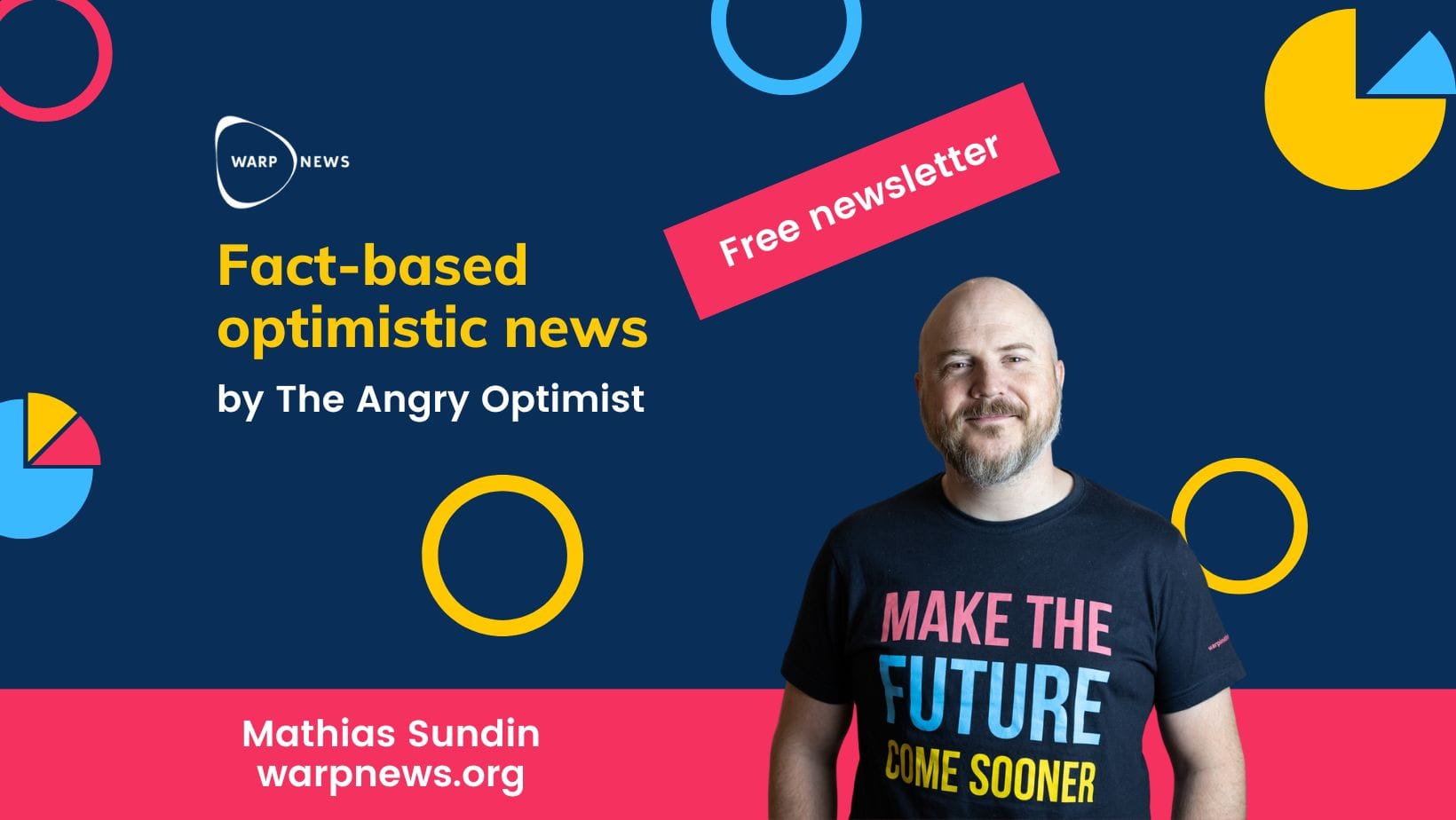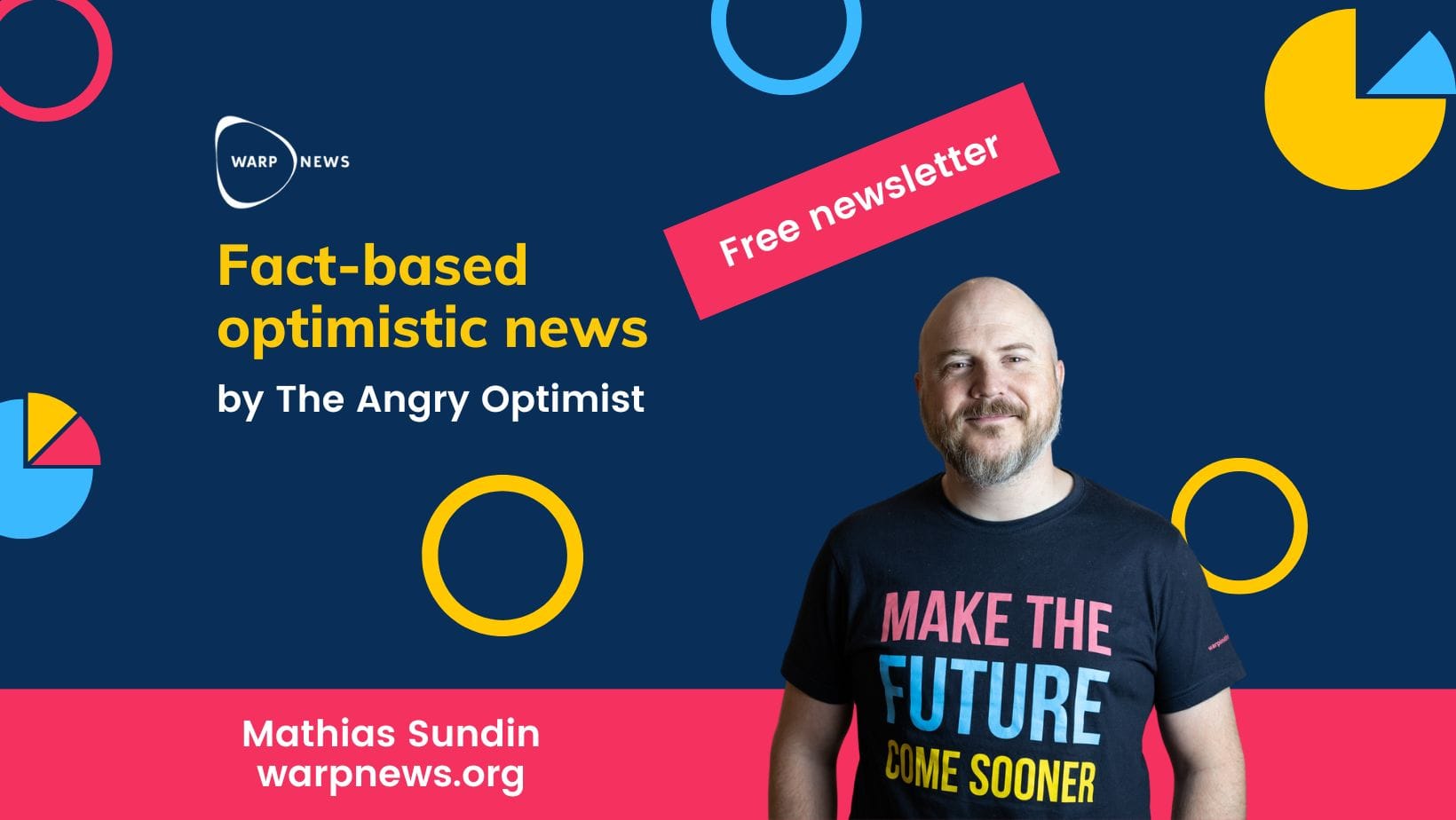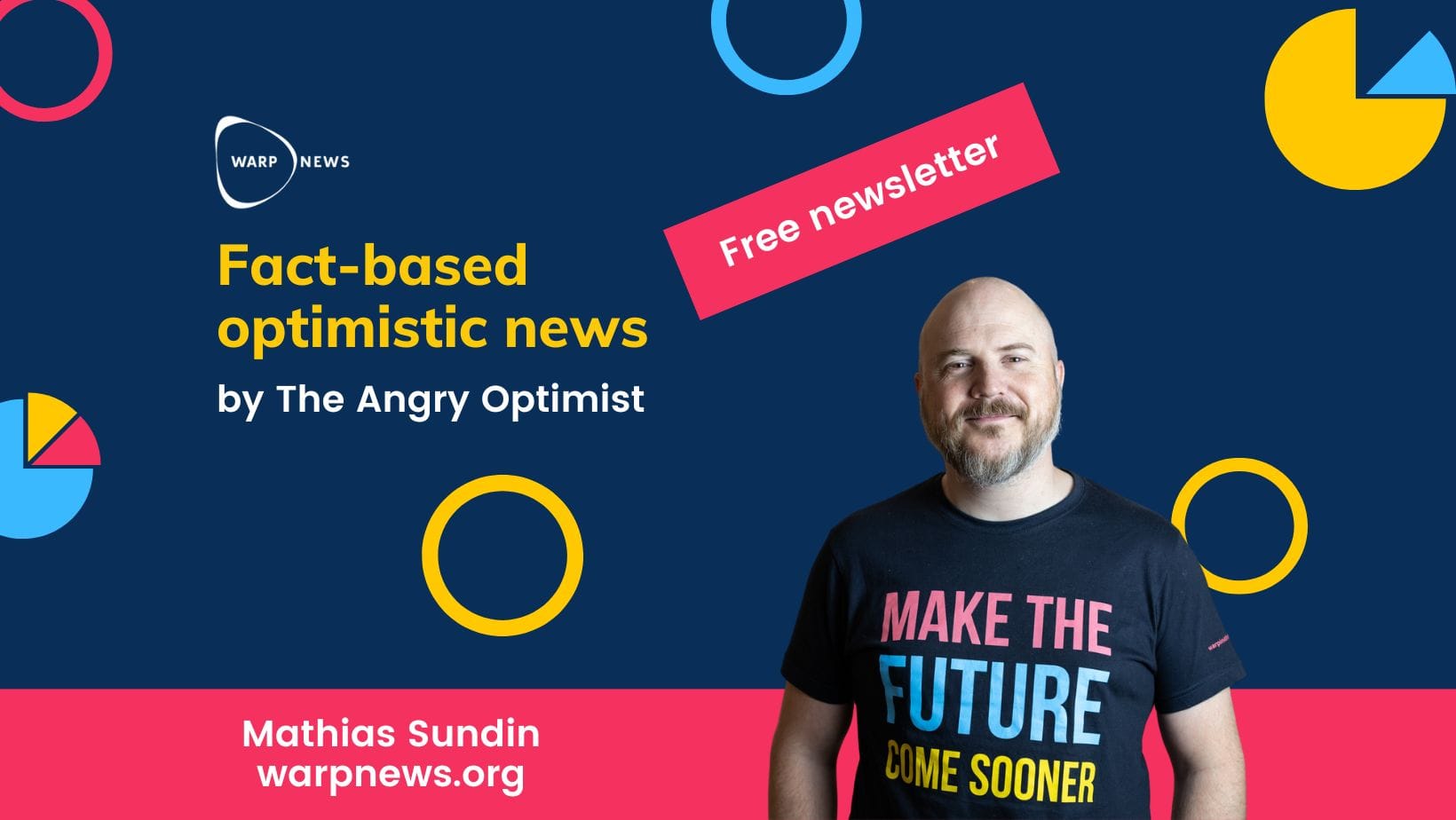
Share this story!
This newsletter is sent out to over 15,000 people every week. Subscribe here.
👽 Has extraterrestrial technology been in our solar system?
Professor Avi Loeb believes that this is the most likely explanation for the cigar-like object that passed through the solar system four years ago.
Professor Loeb is not just anyone. He is one of the world's leading astrophysicists, a professor at Harvard, chairman of the Breakthrough Starshot Advisory Committee and founding director of the Black Hole Initiative.
At the Warp Space Summit he will tell why he believes this is the case.
Last week, 50 people could sign up for $30 and win a book about SpaceX. The tickets went quickly -- but here is another chance.
For $40 (normally $250) you get a ticket to the Warp Space Summit + one year of Premium Supporter membership.
In addition, you can win a signed copy of Avi Loeb's book Extraterrestrial: The First Sign of Intelligent Life Beyond Earth.
But it's only for the first 100, and 12 have already been sold, so 88 left.
👉 To the offer.
Mathias Sundin
CEO of Warp News
💡 Optimist's Edge: Can you tell the difference between AI and human writing?
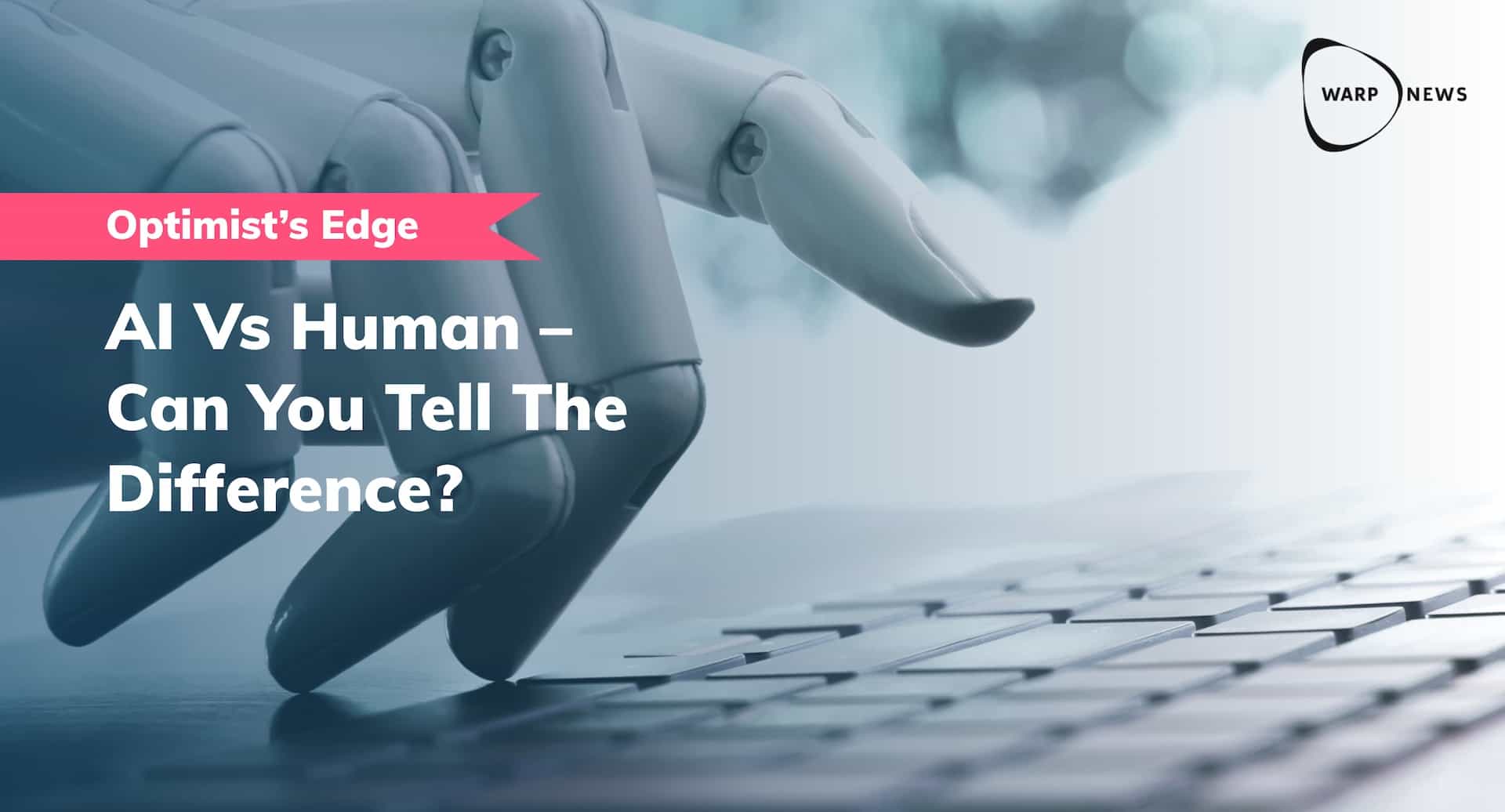
49 percent think they could tell the difference between a text written by a computer and a human, according to our survey. Do you think you could?
💡 Optimist's Edge: Can you tell the difference between AI and human writing?
The article is exclusive to our Premium Supporters. In a minute you can register and get immediate access to it.
Psst! The article contains text written by a computer, can you find it?
💡 Kevin Kelly: The Case for Optimism
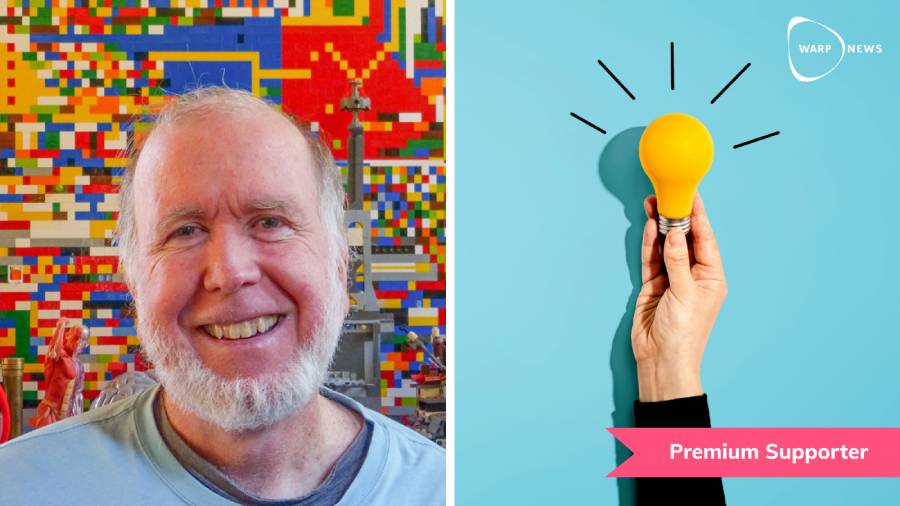
Kevin Kelly is the founder of Wired Magazine and author of several books, among them The Inevitable. For Warp News he presents his case for optimism.
👉 Read this Premium Supporter article on Warp News.
Fact-based optimistic news of the week
🥇 Did you know that the Olympic medals are made of metal from recycled consumer electronics?
30.3kg of gold, 4,100kg of silver, and 2,700kg of bronze were recycled to create the Tokyo 2020 Olympic medals.
🛰️ Space lasers! Latest updates from Starlink
Space lasers, improved satellite connection, high-temperature management, and app upgrades. This week, the Starlink team sent an email to current beta-testing customers explaining the latest improvements. In this article, I’ll share these updates with you and what they mean.
💦 New nanoscale material can split water to make fuel
Hydrogen is somewhat the underdog in the vehicle fuel debate, but now scientists have made a breakthrough when it comes to extracting technology.
🧠 Paralyzed man can speak with the help of a "neuroprosthesis"
Electrodes in the brain can detect brain activity and link the activity to the specific words that a patient wants to say.
🦟 Satellites help predict outbreaks of diseases
20 years ago, foreseeing diseases would be seen as science fiction, but today it is a reality. Through a combination of satellite data and models, researchers can predict outbreaks of mosquito-borne diseases weeks in advance.
🛣 New road treatment cools cities and absorbs exhaust fumes
This spray-on road treatment helps cities deal with the heat island effect. On top of that, it absorbs exhaust fumes. One mile is equivalent to 20 acres of trees, in improved air quality.
🌌Scientists has solved a star-formation mystery
In some galaxies, stars form at a much slower rate than others. Why this is the case has eluded researchers for 20 years. Now we have the answer, thanks to a research team from Cambridge University, among others.
🌟 5 ways ISS has helped push science forward
Every space amateur enjoys watching the International Space Station (ISS) in the sky. But its main function goes way beyond its aesthetics. ISS hosts foremost a wonderful laboratory. Thanks to its unique location, astronauts can perform ground-breaking experiments.
✉️ This company address the address problem
About half of the world's population lacks a real address. In other words, a description of a physical place where you as a person can be found. Why is it so important to have an address then? Isn't it a bit old-fashioned in these digital times?
🍚 The Philippines gives GMO "Golden Rice" green light
Vitamin A deficiency affects millions of children worldwide. The Philipines have now become the first country in the region whose authorities have approved a genetically modified nutrient-enriched rice for cultivation.
🛸 "Shields up" - US Air force is developing "energy shields"
Tiny and powerful lasers can automatically shoot down all incoming missiles and thus create a kind of shield around aircraft, ships, and other vehicles. The USAF wants to make a reality of the Star Trek tech.
🧠 A small company beats Elon Musk in the brain-chip race
Neurlink is not the only company trying to merge the man with the machine. Synchron has now got approved by FDA to implant its "brain-computer interface" on patients with severe paralysis, for an early feasibility study.
🌿 C40 cities will tackle climate change with urban greenspaces
Major cities around the world have decided to make their urban areas greener in order to help tackle climate change.
🧬DeepMind plans to releases a database with all known proteins in the world
DeepMind has created an AI that can predict the shape of a protein with the accuracy of a fraction of an atomic width. The company now provides access to the shape of millions of proteins in an open database.
By becoming a premium supporter, you help in the creation and sharing of fact-based optimistic news all over the world.
